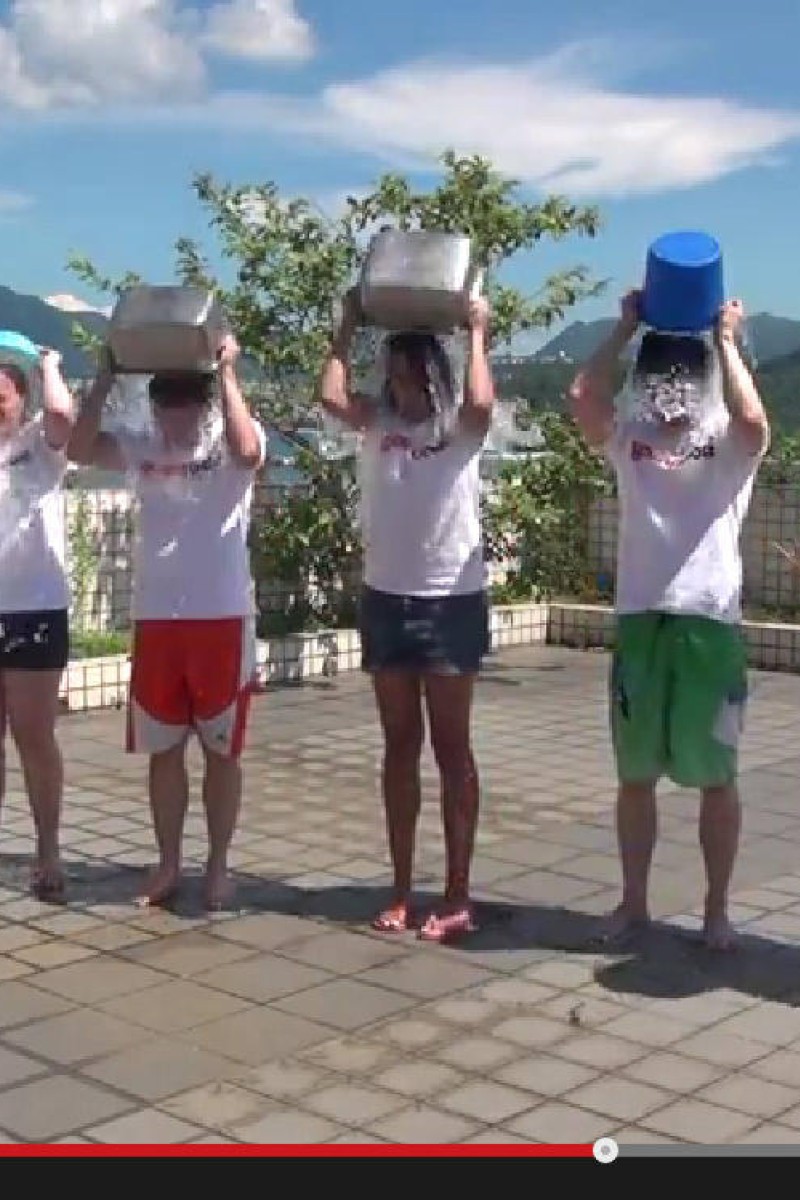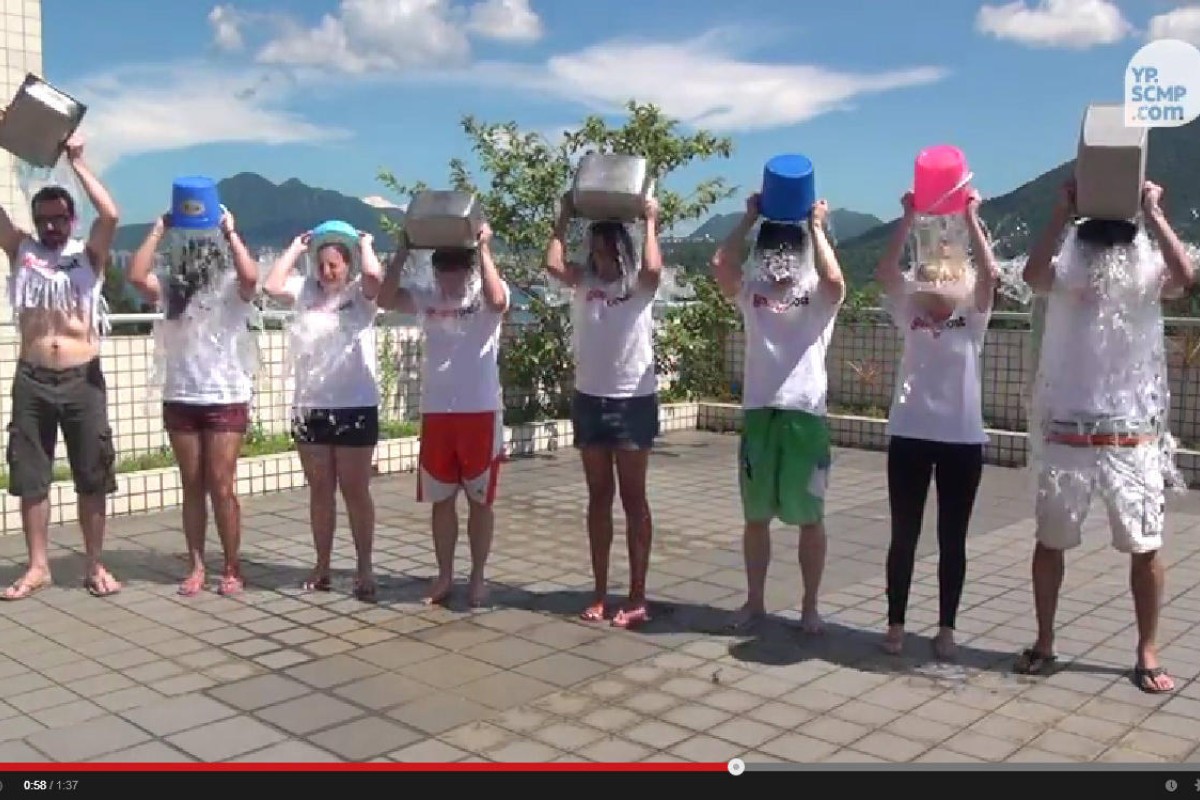
The Ice Bucket Challenge isn't just a bit of fun. It's raising awareness of a serious illness. Joyee Chan finds out how tough life is for ALS sufferers
 Young Post team took part in the Ice Bucket Challenge too!
Young Post team took part in the Ice Bucket Challenge too!Unless you've been hiding under a giant bucket this summer, you've probably watched countless celebrities take on the Ice Bucket Challenge.
Celebs like movie star Emma Stone, local pop idol Joey Yung and basketball legend LeBron James are among those who've appeared on YouTube getting covered in a bucket of ice-cold water, all in the name of charity.
The internet craze started off in the United States to raise money and awareness of an incurable, degenerative illness called amyotrophic lateral sclerosis (ALS).
The deal is simple: nominees have 24 hours to summon up the courage to take a freezing shower in front of the camera, or donate money to an ALS charity, although many choose to do both. They also get to challenge three others to do it. The "frozen" sensation from the ice-cold water is meant to represent the difficulty ALS sufferers have when moving.
On Monday, Young Post also took on the challenge and will donate to the Hong Kong Neuro-Muscular Disease Association (HKNMDA), which provides psychological and financial support to about 50 ALS patients in Hong Kong.
Whether or not you've been challenged, it's worth learning about what ALS is. After all, the whole point of the campaign is to raise awareness of the disease.
About 300 people suffer from ALS in Hong Kong. Most sufferers lead ordinary, healthy lives until the illness hits them in their 40s and 50s - it rarely affects young people. The cause is unknown, although it can be hereditary.
The disease begins by weakening people's muscles, making it difficult to move, speak, swallow and even breathe. Usually within three years of diagnosis, patients find it hard to leave their bed and require round-the-clock care, according to HKNMDA president Raymond Lau Wai-ming.
Most people die of respiratory failure or pneumonia within five years of being diagnosed with ALS. But a rare few - most notably physicist Stephen Hawking - survive longer.
The illness doesn't only affect the lives of those who suffer from it, but also their family and friends who have to attend to their needs 24 hours a day. Most patients stay home because they would have trouble explaining what they need at a care centre.
"It's important to have trust between ALS patients and caretakers," says Lau. "With experience, family members can tell if the patient is in pain or needs food by their facial expression and eye contact."
This means that many people have to quit their jobs or studies to help a family member with ALS. Watching a loved one suffer from the illness can take a toll on the carer, too. Many need support from a psychologist.
And it's not cheap, either. Patients require a wheelchair and an adjustable bed, as well as breathing and other medical equipment. On top of this, helpers may need to be hired and adjustments made to a home. The total costs can easily exceed HK$20,000 per month.
Because the illness is so rare, there is no government-funded programme specifically for ALS. However, patients qualify for money from two schemes under the Social Welfare Department's Community Care Fund, which offers up to HK$2,500 to rent breathing equipment and HK$2,000 for medical supplies.
Lau is thankful for the donations that the HKNMDA has received so far, and hopes the Ice Bucket Challenge will help the public understand what ALS patients and their families go through.
To donate, send a crossed cheque payable to "Hong Kong Neuro-Muscular Disease Association Limited" to G/F, Wang Lai House, Wang Tau Hom Estate, Kowloon, Hong Kong, or you can make a bank transfer to: HSBC Account #078-353133-838